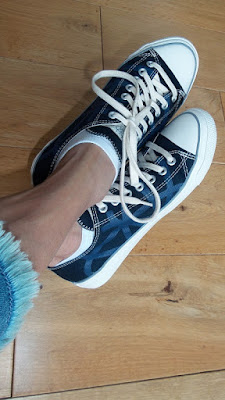Good designs should be displayed of course but can benefit greatly from being shown off in a commercial setting that showcases their functionality.
This is the thinking behind London designer Tom Dixon's new venture in Milan as he has chosen to show off his new collections at
The Manzoni currently until Sunday 14th April 2019 to coincide with
Milan Design Week.
 |
| The Dining Hall in The Manzoni, a restaurant and also an experimental space cum a theatrical backdrop of Italian food and an international stage to present the designer's latest innovations and best sellers. |
The Manzoni, a formal dining experience in the centre of Milan. Tom Dixon design meets Italian cuisine, expressed in a Restaurant, Showroom and Shop.
Tom Dixon has returned to Milan after a year's absence and decided that a better strategy for showcasing his design brand is to embed itself into the heart of Italy's commercial and cultural capital.
The Manzoni is a new 100-cover restaurant created by Tom's
Design Research Studio. It is pre-opened this week to coincide with Milan Design Week; after the fair it will re-open as a permanent restaurant and a showroom for his new collections.
 |
| The Jungle inside The Manzoni, Milan. |
The Manzoni is open for Salone del Mobile from Tuesday 9th — Sunday 14th April 2019, and will re-open permanently after Design Week.
Tom Dixon says The Manzoni will be the brand's first mainland European home.
He says: "After years of doing 5-day exhibition in Milan, we finally decided that we had enough of putting such huge energy into pop-up interventions. We wanted to look at different ways of being present in Milan. With the city being so active and engaging right now, it is the right time to forget being temporary and build something permanent.
 |
| Tom Dixon's restaurant and showroom in Coal Harbour, London. Photo by Lucia Carpio. |
"Just like in London, we don't think it's enough to just have a showroom. We need a place where people slow down and experience our products in a live setting. There is nothing dustier than a conventional lighting and furniture showroom. But with The Manzoni, people are able to experience our new collections in an active context.
 |
| Another view of the Dining Hall, in The Manzoni, Milan. |
 |
| The bar and shop. |
The Manzoni is a restaurant and also an experimental space, a theatrical backdrop of Italian food (lunch is by invitation only) and an international stage to present the designer's latest innovations and best sellers. New collections on show include FAT, SLAB, OPAL and SPRING.
Every element of The Manzoni is an exploration of traditional and new materialities and manufaturing processes, according to Tom Dixon. The materials have been sourced from different regions of Italy; stone from Mount Etna in Sicily, marble from Verona and flowers from Sardinia, for example.
The entrance of The Manzoni features a monolithic block of granite, which serves as the foundation of the bar. Exotic lava stone tiles decorate the wall, which complements the materiality of the Testi stone bar. New lighting range Opal illuminates the space with an ethereal glow.
The dining hall features monastic cork dining tables where guests are invited to dine in a communal setting for lunch and dinner. Tom Dixon's new FAT dining chairs upholstered in Raf Simons latest collection for Kvadrat are shown here along with SPRING pendant light installations suspended from the ceiling.
In the gallery is a dense jungle of greenery supplied by Sardinian florist, Art Flowers Gallery. Palms and vines flourish from spun aluminium planters and cluster together to create a wild overgrown oasis. In the centre of The Manzoni is a courtyard which features a custom-made forest green marble table designed by Testi and JKL Design Studio.
Images of The Manzoni from Tom Dixon.



























